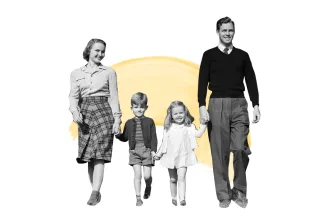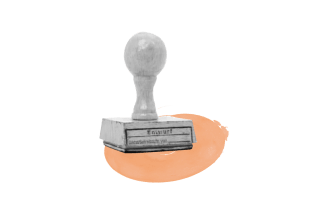Name Directory by Last Name: Last Names Starting with Ba
Explore millions of names to discover rich genealogical details and uncover your family's history
Enter a name to research
Last name meanings and origins
- Bailey
The surname Bailey has its roots in medieval England, deriving from the Old French term "bailli," which means "bailiff" or "steward." This occupational surname first appeared in the 12th century, particularly after the Norman Conquest of 1066, when the feudal system established roles such as bailiffs to manage estates and collect rents. As a result, individuals bearing the surname Bailey were often associated with positions of authority and responsibility within their communities, overseeing agricultural production and local governance.
- Barnes
The surname Barnes has its historical roots in England, deriving from the Old English word "bern," which means "barn" or "a place where grain is stored." The name likely originated as a topographic surname for someone who lived near or worked in a barn, or it could have been a locational surname for someone from a place named Barnes, such as the area in southwest London. The earliest recorded instances of the surname date back to the 13th century, with variations appearing in different regions.
- Barker
The surname Barker has its historical roots in England, deriving from the Old English word "bearc," which means "a baker" or "one who bakes." The name first appeared in the medieval period, with records dating back to the 13th century. It was often associated with individuals who were involved in the baking trade, a vital occupation in communities where bread was a staple food.
- Ball
The surname Ball has its historical roots primarily in England, with its earliest appearances dating back to the medieval period. The name is believed to derive from the Old English word "beall," meaning "a ball" or "a round object," which may have originally referred to a person who was round in shape or perhaps a player of ball games.
- Bates
The surname Bates has its historical origins in England, deriving from the medieval given name "Bate," which is a diminutive form of "Bartholomew." The name Bartholomew itself comes from the Aramaic "bar-Talmay," meaning "son of the furrow." The surname Bates first appeared in written records in the 13th century, with its bearers often associated with agricultural roles, reflecting the agrarian society of medieval England. Over time, the name evolved, with variations such as Bateman and Batts emerging, often indicating a familial connection to a person named Bate.
- Baldwin
The surname Baldwin has its roots in Old French and Middle English, deriving from the personal name "Baldwin," which itself comes from the Germanic elements "bald," meaning bold or brave, and "wine," meaning friend. The name first appeared in England after the Norman Conquest of 1066, when many Norman nobles brought their names to England.
- Barton
The surname Barton has its historical roots in England, deriving from the Old English term "bere-tun," which translates to "barley town" or "farmstead." This indicates that the name likely originated as a locational surname, referring to individuals who lived near or came from a place characterized by barley cultivation. The earliest recorded instances of the surname date back to the 12th century, with various spellings appearing in historical documents, including "Barton" and "Bertone." Over time, the surname became associated with various occupations, particularly in agriculture, reflecting the agrarian lifestyle of medieval England.
- Barber
The surname Barber has its historical roots in the Old French word "barbier," which means "barber" or "shaver," and is derived from the Latin "barbarius," meaning "bearded." The name first appeared in England after the Norman Conquest of 1066, when many French words and customs were introduced into the English language. Barbers in medieval society were not only responsible for cutting hair but also performed various medical procedures, including bloodletting and minor surgeries, which elevated their social status.
- Barry
The surname Barry has its historical roots primarily in Ireland, deriving from the Gaelic name "O'Beara," which means "descendant of Beara." The name Beara itself is believed to be derived from the word "bear," which can signify a warrior or a strong person, reflecting the traits of those who originally bore the name. The O'Beara family was historically associated with the province of Munster, particularly in County Kerry, where they were known as a prominent Gaelic clan.
- Baxter
The surname Baxter has its historical roots in medieval England, deriving from the Old English word "bæc," meaning "baker." It is a patronymic surname, originally denoting someone who was a baker by trade. The name first appeared in written records in the 12th century, particularly in the northern regions of England, where the occupation of baking was essential for daily sustenance.
- Banks
The surname Banks has its historical origins in England, deriving from the Old English word "banc," which means a bank or mound, often referring to a riverbank or hillside. The name first appeared in written records in the 13th century, particularly in the northern regions of England.
- Bauer
The surname Bauer has its roots in the German and Jewish (Ashkenazic) cultures, deriving from the Middle High German word "būre," which means "farmer" or "peasant." This occupational surname first appeared in the medieval period, particularly in regions of Germany, where agriculture was a primary means of livelihood. As a surname, Bauer reflects the agrarian lifestyle of its bearers, often associated with rural communities and the cultivation of land.
- Barnett
The surname Barnett has its historical roots in England, deriving from the Old French personal name "Bernard," which itself comes from the Germanic elements "ber" (bear) and "hard" (brave or hardy). The name first appeared in the medieval period, particularly after the Norman Conquest of 1066, when many French names were introduced into England.
- Bartlett
The surname Bartlett has its roots in medieval England, deriving from the given name "Bart," which itself is a diminutive of "Bartholomew," a name of Aramaic origin meaning "son of the furrow." The surname first appeared in the 13th century, with early records indicating its presence in various regions of England, particularly in the counties of Kent and Sussex. Over time, the name evolved, with variations such as Bartlet and Bartlette emerging, often reflecting regional dialects and phonetic changes.
- Bacon
The surname Bacon has its historical roots in medieval England, deriving from the Old French word "bacon," which means "bacon" or "cured meat." It is believed to have originated as a nickname for someone who either produced or sold bacon, or perhaps for someone who had a stocky build reminiscent of a cured pig. The earliest recorded instances of the surname date back to the 12th century, with notable mentions in the Domesday Book of 1086.
- Baird
The surname Baird has its historical roots in Scotland, particularly associated with the Gaelic word "baird," which translates to "bard" or "poet." This indicates that the original bearers of the surname were likely involved in the oral tradition of storytelling and poetry, a respected role in Scottish culture. The surname first appeared in written records in the 12th century, with its early bearers often linked to the Scottish Highlands.
- Barr
The surname Barr has its historical roots primarily in Scotland and Ireland, deriving from the Gaelic word "bar," which means "hill" or "mountain." The name is often associated with geographical features, indicating that the original bearers may have lived near or on elevated land. The surname first appeared in written records in the 13th century, with its development linked to the feudal system where surnames became hereditary.
- Barlow
The surname Barlow has its historical roots in England, with its earliest appearances dating back to the medieval period. The name is derived from the Old English elements "beorh," meaning hill, and "hlaw," meaning mound or barrow, suggesting a geographical origin related to a hill or burial mound.
- Ballard
The surname Ballard has its historical roots in medieval England, with its earliest appearances traced back to the 12th century. The name is believed to derive from the Old French word "balard," which means "a person who is bold or brave," or from the Middle English term "bald," referring to someone who is bald or shaven-headed.
- Bass
The surname Bass has its historical origins rooted in the Old French word "basse," which means "low" or "short," and is believed to have been used as a nickname for someone of short stature or perhaps for someone living in a low-lying area. The surname first appeared in records in England during the medieval period, particularly after the Norman Conquest of 1066, when many French names were introduced into the English lexicon.
- Barnard
The surname Barnard has its historical roots in medieval England, deriving from the Old Germanic personal name "Bernhard," which means "brave as a bear." The name first appeared in written records in the 12th century, often associated with individuals who held positions of nobility or land ownership. Over time, the surname became linked to various occupations, particularly in the context of land management and agriculture, reflecting the agrarian society of the period.
- Barron
The surname Barron has its historical roots in the Old French word "baron," which originally denoted a nobleman or a person of high rank. The name first appeared in England after the Norman Conquest of 1066, when many French nobles settled in the region.
- Bassett
The surname Bassett has its historical roots in England, with origins tracing back to the medieval period. It is derived from the Old French personal name "Basset," which itself is a diminutive form of "Bas," meaning "low" or "small." The name was likely used to denote someone of short stature or perhaps a person with a humble background.
- Barrymore
The surname Barrymore has its historical roots in England, with its earliest appearances dating back to the medieval period. The name is believed to be derived from the Old English elements "bear," meaning "to carry," and "mor," meaning "moor" or "marsh," suggesting a geographical connection to a landscape characterized by wetland or moorland.
- Babcock
The surname Babcock has its historical roots in England, with its earliest appearances dating back to the medieval period. The name is believed to be of Anglo-Saxon origin, derived from the Old English personal name "Babec," which may have been a diminutive form of "Bald," meaning "bold" or "brave." The suffix "-cock" is a diminutive or affectionate term, suggesting that the name could have originally referred to a young boy or a person of endearment.
- Barclay
The surname Barclay has its historical roots in Scotland, with its earliest recorded instances dating back to the 12th century. The name is believed to derive from the Old English elements "barc" meaning "birch" and "leah" meaning "clearing" or "meadow," suggesting a geographical origin related to a birch tree clearing.
- Baer
The surname Baer has its historical roots in the German-speaking regions of Europe, particularly in Germany and Switzerland. The name is derived from the Middle High German word "ber," which translates to "bear," a symbol of strength and bravery.
- Baron
The surname Baron has its historical roots in the Old French word "baron," which originally referred to a nobleman or lord, deriving from the Latin "baro," meaning "man" or "warrior." The name first appeared in medieval France and was associated with the feudal system, where barons held lands granted by the king in exchange for military service. Over time, the surname became hereditary, passed down through generations, and was often linked to the social status and responsibilities of the nobility.
- Bateman
The surname Bateman has its historical roots in England, deriving from the Old English personal name "Bata," which means "a servant" or "a worker." The name first appeared in written records during the medieval period, with its earliest instances found in the 13th century. As a patronymic surname, it likely indicated lineage, meaning "son of Bata." Over time, the surname became associated with various occupations, particularly in agriculture and trade, reflecting the social roles of those who bore it.
- Bancroft
The surname Bancroft has its historical roots in England, with its earliest appearances dating back to the medieval period. The name is derived from the Old English elements "ban," meaning "bent" or "bending," and "croft," which refers to a small farm or enclosure.
- Barrow
The surname Barrow has its historical roots in England, deriving from the Old English word "bearwe," which means "a mound" or "a barrow," referring to a burial mound or tumulus. The name likely originated as a topographical surname for individuals living near such geographical features, particularly in areas where ancient burial sites were prominent.
- Bakker
The surname Bakker has its roots in the Netherlands, deriving from the Middle Dutch word "bakker," which means "baker." This occupational surname first appeared in the late medieval period, around the 13th century, when surnames began to be adopted more widely in Europe. The role of a baker was significant in medieval society, as bread was a staple food, and bakers were essential to the community's sustenance.
- Baum
The surname Baum has its historical roots in the German-speaking regions of Europe, where it is derived from the Middle High German word "boum," meaning "tree." This connection to nature suggests that the name may have originally been a topographical surname for someone who lived near a notable tree or forested area. The surname first appeared in written records during the medieval period, with its usage becoming more widespread as surnames became hereditary in the 15th century.
- Barbier
The surname Barbier has its roots in the Old French word "barbier," which translates to "barber" in English. Historically, the name first appeared in France during the medieval period, particularly in the 12th century, when surnames began to be adopted based on occupations.
- Baumann
The surname Baumann has its roots in the German-speaking regions of Europe, deriving from the Middle High German word "bouman," which translates to "builder" or "farmer." Historically, it first appeared in the medieval period, particularly in the 13th century, as a designation for individuals involved in construction or agriculture. The name reflects the social roles of those who bore it, often associated with trades such as carpentry or masonry, which were vital to the development of towns and villages.
- Bartholomew
The surname Bartholomew has its roots in the biblical name "Bartholomeus," which is derived from the Aramaic "bar-Talmay," meaning "son of Talmay" or "son of the furrow." This surname first appeared in medieval Europe, particularly in England and France, during the 12th century, often associated with individuals who were either of noble descent or had connections to the clergy. The name became more widespread as it was adopted by various families, some of whom were landowners or held positions of influence in their communities.
- Bagley
The surname Bagley has its historical roots in England, with its earliest appearances traced back to the medieval period. The name is believed to derive from the Old English elements "bæcg," meaning "a stream," and "leah," meaning "a clearing or meadow," suggesting a geographical origin related to a location near a stream or a meadow.
- Bach
The surname Bach has its roots in the Germanic languages, deriving from the Middle High German word "bach," which means "stream" or "brook." This geographical surname likely originated as a topographical identifier for individuals living near a stream or a brook, a common practice in medieval Europe. The earliest recorded instances of the surname date back to the 13th century in Germany, where it was associated with various regions, particularly in Bavaria and Saxony.
- Barth
The surname Barth has its historical roots in the Germanic and Hebrew languages, with its earliest appearances traced back to the medieval period in Europe, particularly in Germany. The name is derived from the Hebrew name "Baruch," meaning "blessed," and it was often adopted by Jewish families in the region.
- Bauman
The surname Bauman has its historical roots in the German-speaking regions of Europe, particularly in Germany and Austria, where it first appeared in the medieval period. The name is derived from the Middle High German word "bouman," which means "builder" or "farmer," indicating that the original bearers of the surname were likely involved in construction or agricultural activities.
Start your family tree for free
Start by entering a few names and MyHeritage will do the rest, so you can make meaningful discoveries
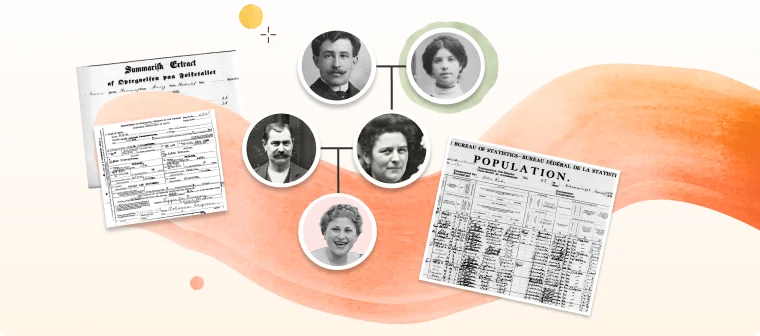
Explore historical records

Explore 1,810,427,080 census and voter list records to get a detailed snapshot of your ancestors' lives. Discover names, ages, occupations, family relationships, residences, and much more.

Explore 4,647,704,406 birth, marriage, and death records. Uncover valuable details about major family milestones and find names, dates, places, occupations, and residences of your ancestors and relatives.

Search 266,544,192 military records and discover the stories of courage and resilience in your family history. Military records include enlistment dates, ranks, locations, and even physical descriptions.
Embark on a fascinating journey to discover your family history
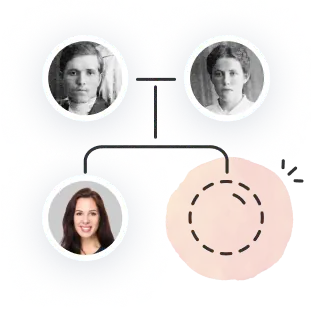
Start by adding a few names. Myheritage's automatic matching technology will help you expand your family tree and delight you with new discoveries.

Reveal your ethnic origins and find relatives you never knew existed with our simple DNA kit.
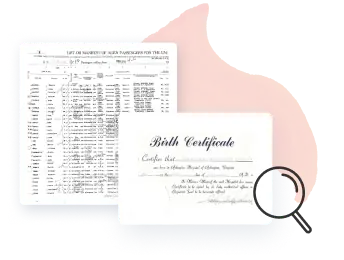
Dive into MyHeritage's international collection of 36.7 billion historical records - start with a name of an ancestor and see what our collections can reveal about your family history.
About MyHeritage

MyHeritage is the leading global platform for family history. It enriches the lives of people worldwide by enabling them to uncover more about themselves and where they belong. With a suite of intuitive products, billions of historical records, an affordable at-home DNA test, and AI-powered photo tools, MyHeritage creates a meaningful discovery experience that is deeply rewarding. The MyHeritage platform is enjoyed by tens of millions of people around the world who treasure and celebrate their heritage.

